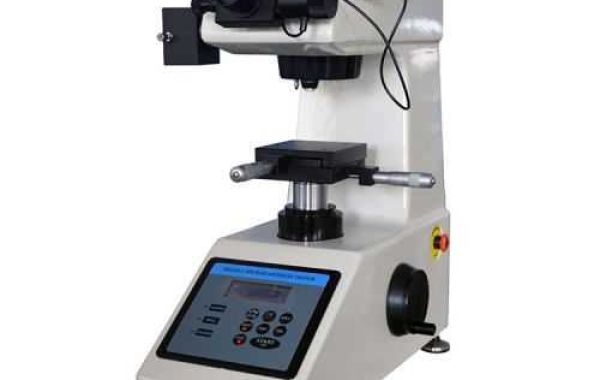Selecting the right Vickers hardness tester for your needs requires careful consideration of several factors. Here's a guide to help you make an informed decision:
1. Material and application:
- Material type: Different materials necessitate various test forces and indenter types. A tester with a higher load capacity and a diamond indenter is required for harder materials. Lower loads and alternative indenters may be appropriate for softer materials.
- Sample size and geometry: Take into account the size and shape of your samples. Some testers focus on small areas or curved surfaces.
- Desired accuracy and repeatability: Some applications require high precision, while others can tolerate a greater degree of variation. Select a tester with the appropriate resolution and measurement system for your requirements.
- Destructive vs. non-destructive: If sample preservation is critical, consider alternative methods such as Knoop hardness testing, which produces smaller indentations.
2. Tester features and specifications:
- Load range: Select a tester with a load range appropriate for your material hardness. Micro-Vickers typically have a range of 1-100 kgf and macro-Vickers have a range of 5-30 kgf.
- Indenter types: The diamond indenter is used by most Vickers testers, but some offer alternative options such as Knoop or Berkovich for specific applications.
- Measurement system: For accurate indentation measurement, look for a tester with a high-resolution optical microscope and precise measurement software.
- Automation level: Some testers include automated features such as motorized stage movement, automatic focus, and data acquisition to improve efficiency and repeatability.
- Software and reporting: Select a tester that includes user-friendly software for data analysis, report generation, and integration with other systems if necessary.
3. Additional considerations:
- Budget: Vickers testers are priced differently depending on their features and capabilities. Set a reasonable budget and prioritize essential features according to your requirements.
- Brand reputation and service: Choose a reputable manufacturer that provides excellent customer service and support. Consider things like warranty coverage and spare part availability.
- Ergonomics and ease of use: Make sure the tester is easy to use and comfortable to use, especially if you will be testing frequently.








